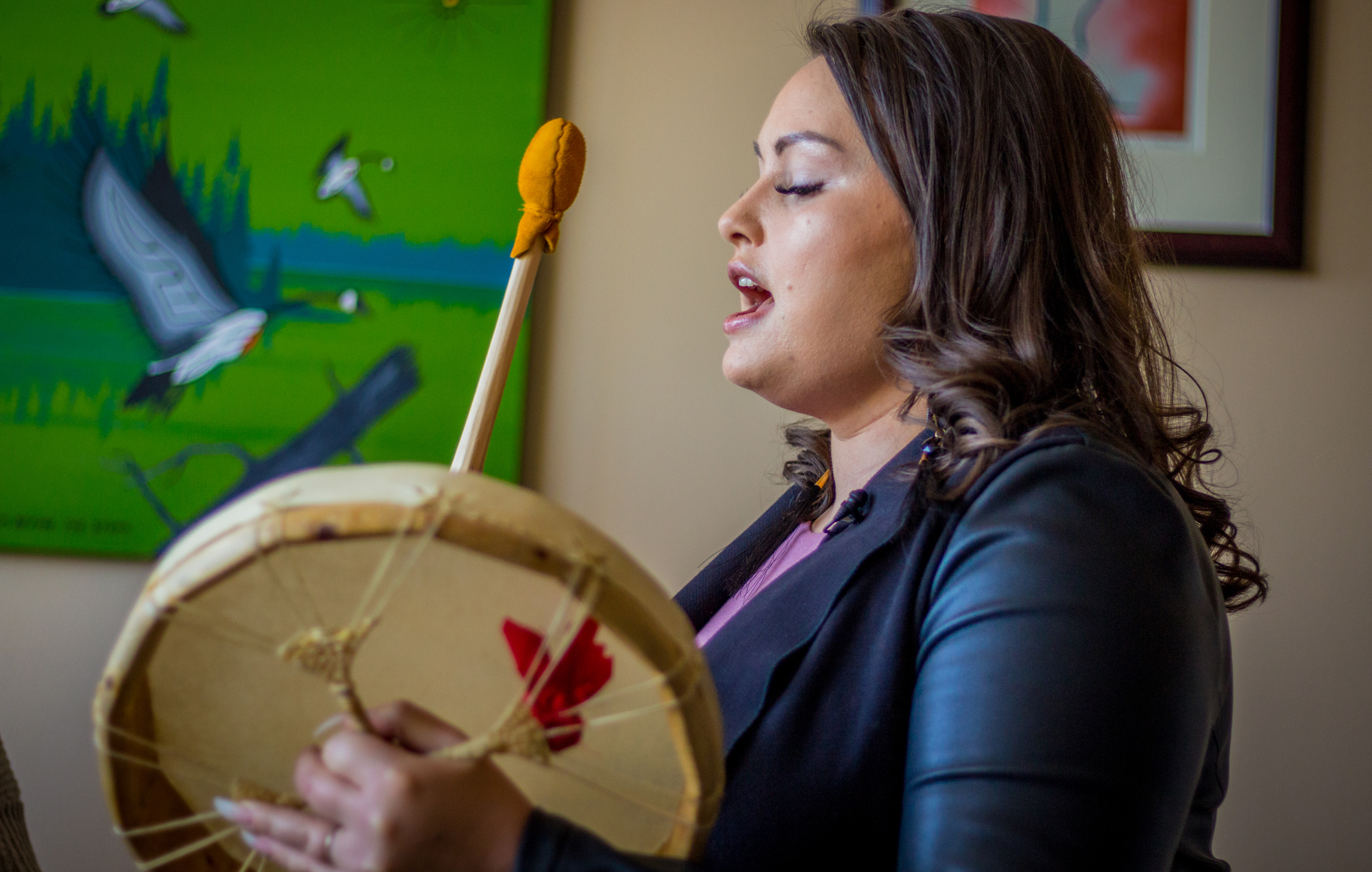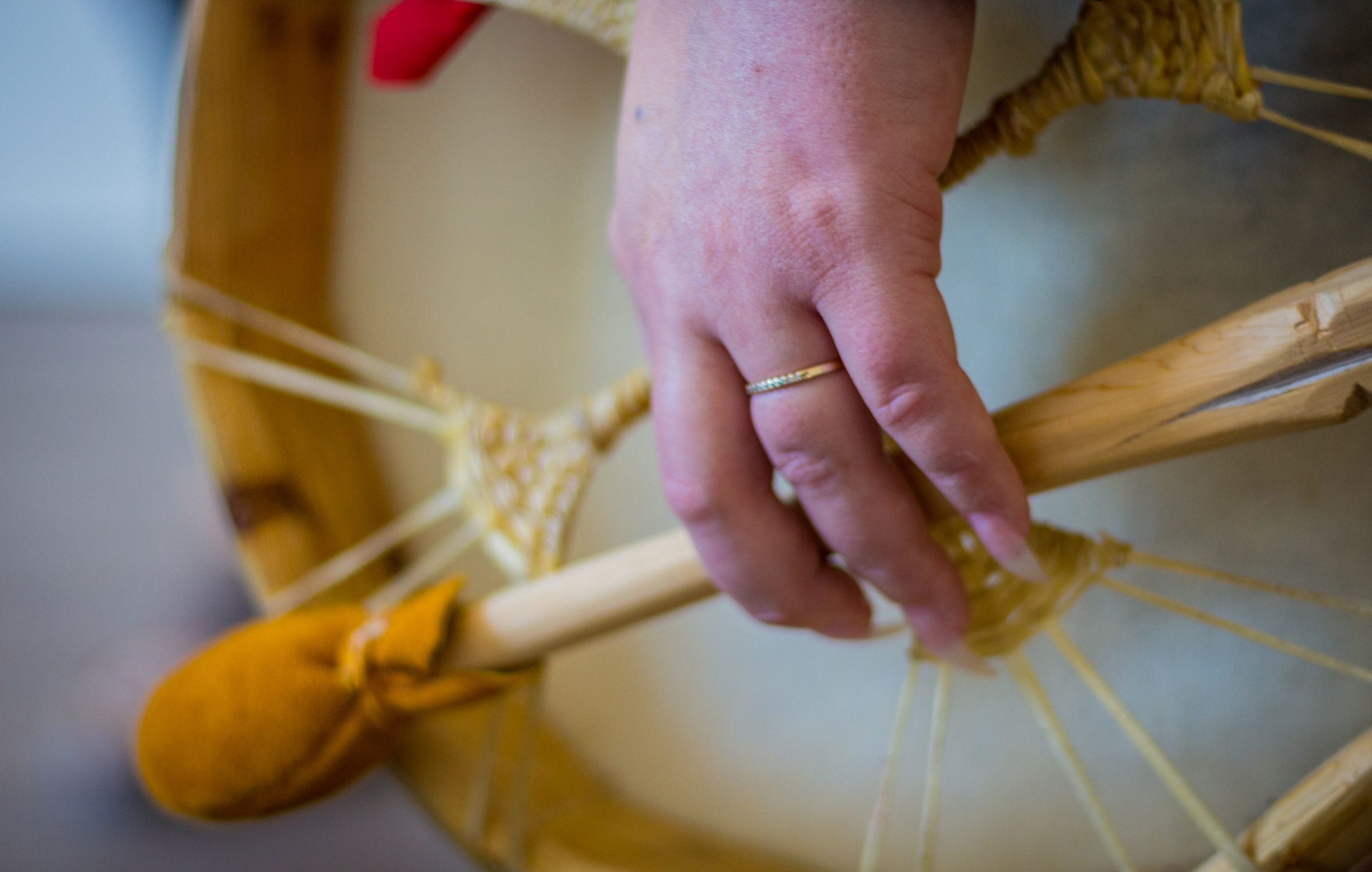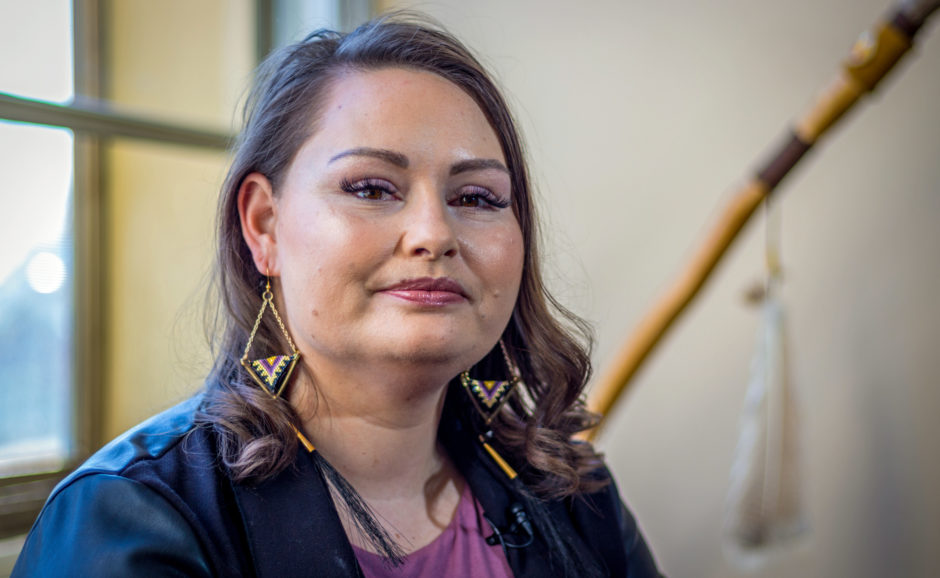March 27, 2019
When Gabrielle Fayant picks up a drum, she's got more to think about than keeping a beat.
Indigenous drumming comes with more responsibility than that. You have to be "in a good place," she says, and feel a sense of well-being.
Fayant, 31, hasn't always felt that way.
"For myself, I lived a long time without that sense of belonging or understanding who I was. That made me lost, for a really long time."
When she was small, after she and her mother left Alberta, they settled in Vanier, where they lived in "severe poverty" and sometimes had to run a tab at the corner store.
Then, when Fayant was just 19, her mother died. She had a hard time learning to take care of herself.
"It really takes a lot of conditioning and willpower not to get caught up in chaos when you're so used to it. I just had to find my own way out of this hole that I was in," she says.
Lifting Indigenous youth up
But before Fayant's mother died, she had "sacrificed everything so I could have a better life," Fayant says.
And so, even after school guidance counsellors told Fayant she wasn't smart enough for university and didn't have enough money to go, she was accepted to study at Carleton University.
Fayant calls that the turning point in her story.
"So in that moment, I was like, I could actually do something really awesome with my life."
In 2012, Fayant and others started the Assembly of Seven Generations (A7G), an Indigenous owned and youth-led non-profit to support and empower Indigenous young people.
Exposing them to traditional knowledge and guidance from elders form a big part of A7G's programming.

"I don't want young people to go through what I had to go through. I want them to feel good about themselves, and to not just feel like they're getting by," Fayant explains.
In 2015, Indigenous and Northern Affairs Minister Carolyn Bennett (since renamed Crown-Indigenous Relations and Northern Affairs) asked Fayant and two youths to create the terms of reference for an Indigenous youth council.
But they didn't want to do things the same old way.
"We knew how quickly Indigenous youth voices get tokenized, and we did not want to create another form of this, where Indigenous youth would be putting their concerns and voices out only to be swept under the rug," Fayant says.
They decided to focus on the Truth and Reconciliation Commission's 66th recommendation: that the federal government establish multi-year funding for youth organizations to deliver programs on reconciliation, and establish a national network.
Their report on the subject was published in June 2018, and Fayant and her team are still hoping for a meaningful commitment from the government.

Trailblazers is a community connection project that shares the stories of people making a positive impact in the Ottawa area.
